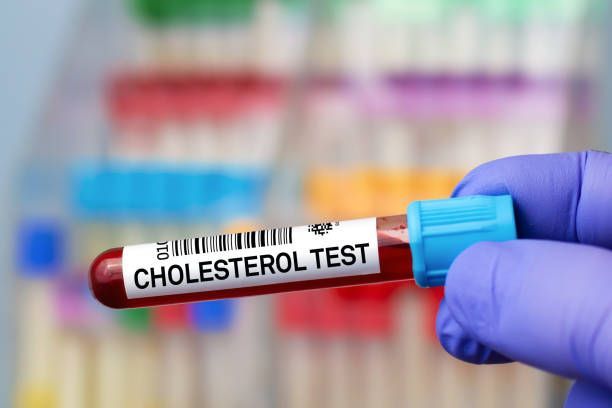Can Poor Air Quality Make You Sick? What to Watch For
If you’ve ever walked outside on a smoggy day and felt your chest tighten or your eyes water, you may have wondered: Can poor air quality make you sick? The short answer is yes. Air pollution and poor indoor air quality can have both immediate and long-term effects on your health. From mild symptoms like coughing and headaches to serious issues like asthma, heart disease, and even premature death, the quality of the air we breathe matters more than we often realize.
Understanding the dangers of poor air quality, and knowing when to seek medical care, can help protect you and your family from preventable health risks.
What Is Air Quality?
Air quality refers to how clean or polluted the air is. It’s measured using the Air Quality Index (AQI), which rates pollution levels on a scale from 0 (good) to 500 (hazardous). The higher the AQI, the greater the health risks. (EPA)
Factors that can contribute to poor air quality include:
- Outdoor pollution: vehicle emissions, industrial smoke, wildfires, pollen, and dust.
- Indoor pollution: mold, secondhand smoke, cooking fumes, cleaning chemicals, and poor ventilation.
Can Poor Air Quality Make You Sick?
Yes, poor air quality can affect your health in multiple ways, both immediately and over time. The risks depend on how polluted the air is, how long you are exposed, and your individual health status.
Short-term health effects
When air quality is poor, you may notice symptoms within hours, such as:
- Coughing or throat irritation
- Shortness of breath
- Headaches
- Watery or itchy eyes
- Fatigue
- Dizziness
For people with asthma or other lung conditions, even mild pollution can trigger flare-ups.
Long-term health effects
Prolonged exposure to polluted air has been linked to:
- Chronic asthma or bronchitis
- Cardiovascular disease
- Reduced lung function in children and teens
- Increased risk of lung cancer
- Shortened lifespan
So, the answer to “Can poor air quality make you sick?” is not only yes, it can also have lifelong impacts.
Who Is Most at Risk?

While poor air quality affects everyone, some groups are more vulnerable, including:
- Children and teens: Their lungs are still developing, making them more sensitive to pollutants.
- Older adults: Age-related changes in heart and lung function increase risks.
- People with asthma or COPD: Already weakened airways are more easily irritated.
Pregnant women: Poor air quality has been linked to low birth weight and developmental issues in babies. - Outdoor workers and athletes: Longer exposure times increase the chances of breathing in harmful particles.
Indoor vs. Outdoor Air Quality
Many people assume outdoor pollution is the main culprit, but indoor air can sometimes be more harmful. According to the EPA, indoor air pollution is often 2–5 times higher than outdoor air, and in some cases up to 100 times worse.
Common indoor triggers include:
- Mold and mildew
- Pet dander
- Poor ventilation
- Smoke from cooking or candles
- Chemicals from cleaning supplies
This means that even if you stay indoors during poor outdoor conditions, you may still be exposed to pollutants if your home isn’t well-ventilated.
How to Protect Yourself and Your Family
Since the question “Can poor air quality make you sick?” has a clear answer, the next step is knowing what you can do about it. Here are some practical ways to reduce exposure:
- Check the AQI daily
Use apps or websites like AirNow.gov to stay updated on pollution levels in your area. - Limit outdoor activities on bad air days
If the AQI is unhealthy, avoid strenuous activities outside, especially for kids and older adults.
Keep windows closed
During high-pollution days or wildfire smoke events, seal your home to keep polluted air out. - Use an air purifier
HEPA filters can help remove allergens and particles indoors. - Avoid smoking indoors
Secondhand smoke is a major indoor pollutant, especially harmful to children. - Wear a mask
On high-pollution days, a properly fitted N95 mask can filter out harmful particles. - Improve ventilation
Use exhaust fans in kitchens and bathrooms, and change HVAC filters regularly.
When to Visit Urgent Care
Most mild symptoms from poor air quality, like coughing or eye irritation, can be managed at home with rest, hydration, and limiting exposure.
However, you should seek urgent care if you or a loved one experiences:
- Difficulty breathing or shortness of breath
- Wheezing or severe coughing that doesn’t improve
- Chest pain or tightness
- Asthma attacks not relieved by an inhaler
- Dizziness or fainting
Urgent care clinics can provide fast relief for non-life-threatening conditions, prescribe inhalers or medications if needed, and help you manage symptoms safely.
Final Thoughts
So, can poor air quality make you sick? Absolutely. Both short-term exposure and long-term pollution carry health risks that affect your lungs, heart, and overall well-being. Staying informed, taking preventive steps, and knowing when to seek care are key to protecting yourself and your family.
At UrgiClinic, we’re here to support your health when poor air quality takes a toll. Whether it’s breathing issues, allergies, or asthma flare-ups, our providers are ready to help you feel better quickly and safely.
Walk in with us today. Get the care you need without the long wait—so you can breathe easier and live healthier.













